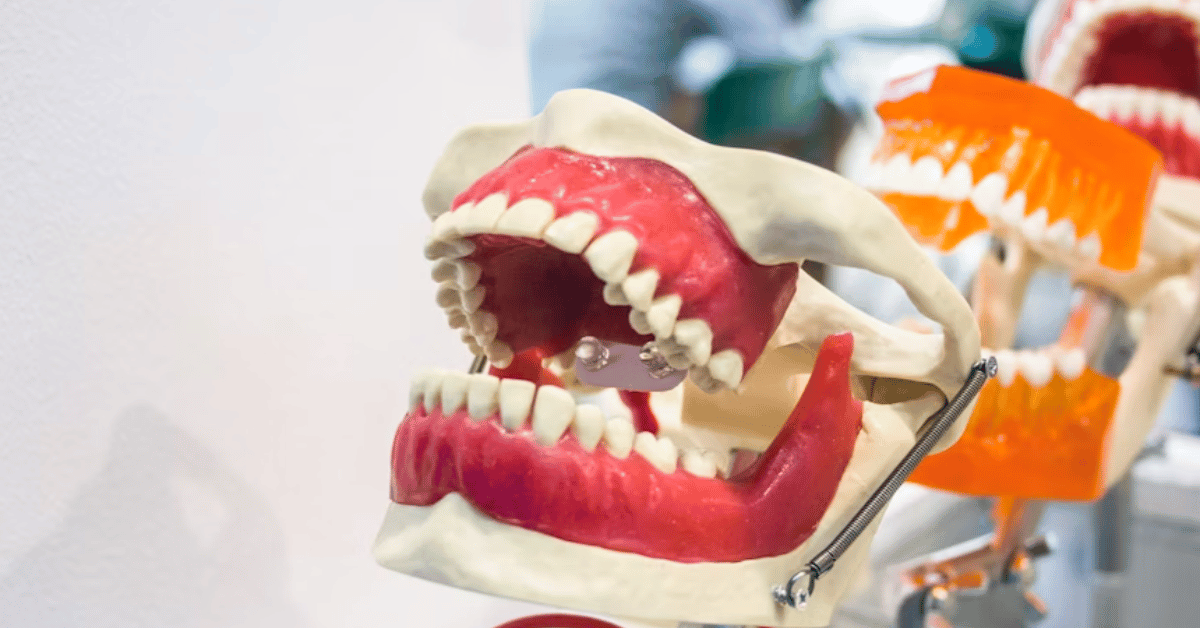In recent years, the phrase “Turkey teeth” has sparked both fascination and controversy around the world. For those searching online, the term refers to the dental veneers and crowns commonly performed in Turkish clinics, often at a fraction of Western prices. People travel from the UK, the U.S., and Europe to Turkey for a complete smile makeover. But what makes “Turkey teeth” so special, and what are the hidden truths behind the glossy Instagram smiles? Within this article, we will unpack the full picture: from what the procedure involves, why Turkey became a global dental hub, how much it costs, the potential benefits and risks, and what every patient should know before booking that flight to Istanbul or Antalya. By the end, you’ll understand not just what Turkey teeth are, but why they’ve reshaped global perceptions of cosmetic dentistry.
The term “Turkey teeth” emerged from viral online trends showing dramatic before-and-after transformations. The process typically involves reshaping natural teeth and covering them with crowns or veneers to create perfect alignment and whiteness. Unlike natural veneers that preserve most of the tooth, Turkey’s procedures are often more invasive, removing large portions of enamel for a “Hollywood smile.” For many, the allure is irresistible: a perfect, gleaming smile at a fraction of Western prices. However, this pursuit of beauty can come with long-term dental implications if not properly managed. What draws people to Turkey’s dental industry isn’t only affordability — it’s the promise of accessible luxury and rapid transformation, delivered by skilled professionals in state-of-the-art clinics.
Understanding What “Turkey Teeth” Really Means
Turkey teeth refer to the trend of dental tourism where patients travel to Turkey for cosmetic dental treatments — usually crowns, veneers, or implants — that drastically change their appearance. The signature “Turkey smile” is characterized by its bright white color, symmetry, and flawless uniformity. Patients typically undergo these treatments in private dental clinics in cities like Istanbul, Izmir, and Antalya, which have become medical tourism capitals. Unlike traditional dentistry, where aesthetic enhancements can take months, Turkish clinics often complete transformations in less than a week, combining efficiency with luxurious patient experiences. This speed, however, often means teeth are aggressively filed down to fit crowns, a practice that has drawn scrutiny from dental professionals worldwide.
One major reason for the surge in popularity is the combination of quality and cost. Turkish dental clinics advertise full-mouth restorations for prices often 60–70% lower than those in the UK or U.S. These savings stem from lower labor costs, favorable currency exchange rates, and government-supported medical tourism initiatives. Patients also receive hotel accommodations, airport transfers, and personal assistance — making the experience more like a vacation than a medical trip.
Why Turkey Became the Global Dental Capital
Turkey’s dental industry has evolved dramatically over the last two decades. Its success is rooted in a well-developed private healthcare system, international accreditation, and aggressive marketing strategies targeting global patients. Clinics invest heavily in modern technology — including CAD/CAM digital design, laser tools, and advanced imaging — to attract an international clientele. The combination of modern equipment, English-speaking staff, and competitive pricing has created a booming sector that rivals dental tourism destinations like Hungary and Thailand.
Another factor is social media. Influencers and celebrities frequently post about their transformations, labeling them “Turkey teeth,” which quickly became both a marketing tool and a cultural phenomenon. The hashtag #TurkeyTeeth has amassed millions of views across TikTok and Instagram, serving as free promotion for Turkish clinics. As one dentist in Istanbul once said, “Turkey has turned smiles into an export.”
Table 1: Average Cost Comparison of Dental Procedures
| Procedure Type | Average Cost in Turkey (USD) | Average Cost in UK (USD) | Average Cost in USA (USD) |
|---|---|---|---|
| Porcelain Veneers (per tooth) | $200 – $300 | $800 – $1,200 | $1,000 – $2,000 |
| Zirconium Crowns (per tooth) | $250 – $350 | $900 – $1,400 | $1,200 – $2,500 |
| Full Mouth Restoration | $4,000 – $6,000 | $15,000 – $30,000 | $20,000 – $40,000 |
| Dental Implants (per tooth) | $500 – $900 | $2,000 – $3,000 | $2,500 – $4,000 |
The Process: From Consultation to Completion
The journey to getting Turkey teeth often begins online. Patients communicate with clinic coordinators through WhatsApp or email, sending photos and X-rays for a digital consultation. Once the plan is approved, patients fly to Turkey, where the procedure usually takes five to seven days. The first appointment involves X-rays, impressions, and tooth preparation — often grinding the teeth into peg shapes to fit crowns or veneers. Temporary crowns are placed while the final restorations are custom-made in the lab. Within a few days, the permanent veneers or crowns are bonded, transforming the smile instantly.
While this fast-track process is convenient, it can also be risky. Over-grinding can lead to tooth sensitivity, nerve damage, or infection. Still, many patients report satisfaction, praising the precision and hospitality of Turkish dentists. Clinics often provide lifetime guarantees and maintenance advice, though aftercare abroad can be challenging if complications arise later.
The Psychological Appeal of a Perfect Smile
The desire for a flawless smile isn’t new — but globalization and social media have magnified its importance. Many patients associate a bright, symmetrical smile with success, confidence, and beauty. “A smile is your most visible accessory,” said a Turkish cosmetic dentist in Antalya. For some, fixing their teeth is a personal transformation — a way to overcome years of insecurity. This psychological dimension explains why even the potential risks do not deter patients from seeking perfection abroad.
However, experts warn that societal pressure for “Instagram smiles” often leads to unrealistic expectations. Not every dental problem requires full crowns or veneers. Less invasive options, like composite bonding or whitening, are often overlooked because patients crave instant, dramatic results. As one British dental expert put it, “The problem isn’t Turkish dentistry — it’s the culture of perfection we’ve built around appearance.”
Comparing Turkish Dentistry Standards
Turkey’s dental training system is rigorous, producing thousands of qualified dentists each year. Many Turkish dentists have international certifications and attend global conferences. Clinics catering to foreigners often hold ISO and JCI accreditations. However, the rapid growth of dental tourism has also led to inconsistencies. Some unlicensed clinics operate without proper hygiene standards, prioritizing volume over quality.
For patients, due diligence is essential. Reading reviews, verifying licenses, and understanding aftercare procedures can make all the difference. A growing number of clinics now offer transparent documentation and direct communication with dental technicians to build trust.
Table 2: Benefits and Risks of Turkey Teeth
| Aspect | Benefits | Risks |
|---|---|---|
| Cost | Up to 70% cheaper than Western clinics | May involve hidden fees for extra procedures |
| Technology | Advanced tools and digital imaging | Variability in clinic quality |
| Time | Complete in under a week | Rushed procedures can compromise results |
| Aesthetic Results | Immediate and dramatic transformation | Overly uniform or unnatural appearance |
| Aftercare | Lifetime warranty at some clinics | Limited local follow-up once back home |
Ethical and Medical Concerns
The “Turkey teeth” trend has raised ethical questions about informed consent and medical transparency. Some patients report not fully understanding how much enamel would be removed before surgery. Others regret irreversible alterations. Ethical dentistry emphasizes long-term oral health, but the cosmetic market thrives on short-term satisfaction. While reputable clinics prioritize patient education, the booming demand has attracted less scrupulous operators who exploit social media marketing. Governments and dental associations are now exploring stricter oversight for medical tourism to ensure patient safety.
The Economics Behind Dental Tourism
Turkey’s dental industry is now estimated to generate billions annually, employing thousands of professionals. The country’s low operating costs and strategic location make it a preferred destination for Europeans and Middle Easterners. Local economies also benefit, with patients spending on hotels, restaurants, and sightseeing. Some clinics even offer travel packages that include guided tours of Istanbul’s historic sites. As dental tourism grows, Turkey’s model has inspired other nations to develop similar healthcare ecosystems blending hospitality and medicine.
Patient Stories: The Real Experiences
Not every “Turkey teeth” story ends perfectly. Some patients return home delighted, sharing glowing reviews of newfound confidence. Others report complications like misaligned bites or gum sensitivity. A British woman who underwent a full-mouth restoration described it as “the best decision of my life,” while another said she needed corrective work afterward. These mixed outcomes highlight the complexity of medical tourism — where patient satisfaction depends as much on communication and expectations as on clinical skill.
The Cultural Dimension of Smile Design
Smile aesthetics vary by culture. Western patients often prefer ultra-white, uniform teeth, while Turkish dentists emphasize proportion and harmony. “A smile should fit your face, not the trend,” said one Istanbul-based dentist. The best Turkish clinics now offer customized smile designs using digital scans and 3D modeling, ensuring each result suits the individual’s facial features. This shift marks the evolution of “Turkey teeth” from a mass trend to a more personalized art form.
Post-Treatment Care and Maintenance
Caring for Turkey teeth is crucial for longevity. Patients must maintain strict oral hygiene, avoid hard foods, and attend regular check-ups. Most Turkish crowns last 10–15 years with proper care. However, repairs abroad can be costly. Dentists recommend follow-up appointments at home and maintaining communication with the original clinic. Many reputable clinics offer online consultations for post-treatment concerns.
The Future of Cosmetic Dentistry in Turkey
The future of “Turkey teeth” lies in innovation and ethics. Clinics are now focusing on minimally invasive procedures, transparent pricing, and international collaborations. With AI-driven smile design and 3D printing, the next wave of Turkish dentistry will likely combine aesthetics with sustainability. As global demand continues, Turkey’s role as a dental tourism leader seems secure — provided it maintains rigorous standards and patient-centered care.
Conclusion
The story of “Turkey teeth” reflects more than just dental fashion — it symbolizes globalization’s impact on beauty, technology, and health choices. Turkey has mastered the art of blending medical skill with hospitality, offering transformative experiences at accessible prices. Yet, the trend also exposes a deeper question about our pursuit of perfection. Are we reshaping smiles or identities? As patients, understanding the full implications — medical, emotional, and financial — is vital before choosing a procedure abroad. In the words of a Turkish dental expert, “A smile should tell your story, not hide it.” With balanced awareness and responsible decisions, Turkey teeth can indeed offer both confidence and craftsmanship, redefining the future of global dentistry.
FAQs
1. What exactly are “Turkey teeth”?
Turkey teeth refer to cosmetic dental procedures, primarily veneers or crowns, done in Turkish clinics to create a perfect smile.
2. Are Turkey teeth safe?
Yes, if done by certified professionals. However, risks include sensitivity, infection, or excessive enamel removal if performed poorly.
3. How long do Turkey teeth last?
With proper care, Turkey crowns or veneers can last 10–15 years, depending on oral hygiene and material quality.
4. Why are Turkey teeth cheaper?
Lower labor costs, favorable exchange rates, and government-supported healthcare tourism reduce overall expenses compared to Western clinics.
5. What should I check before booking a clinic?
Verify credentials, read verified reviews, ask about warranty policies, and ensure clear communication about the treatment plan and aftercare.











